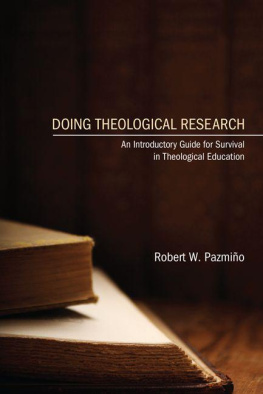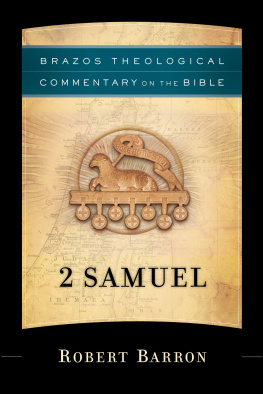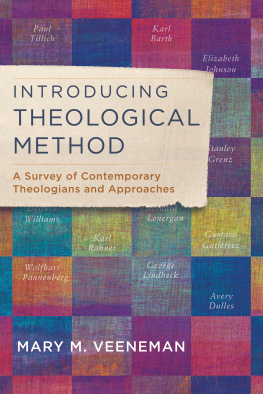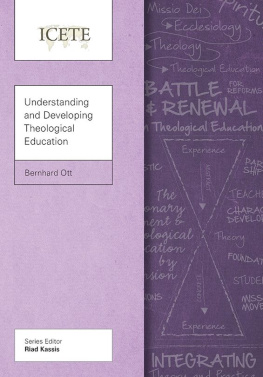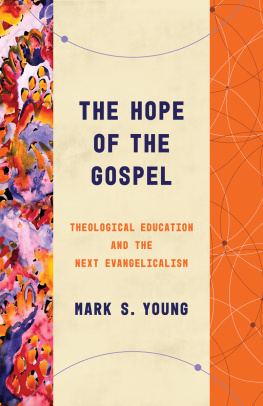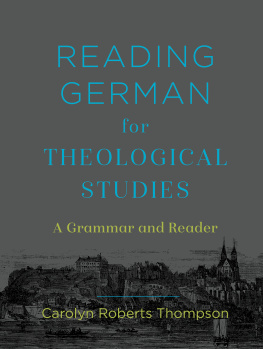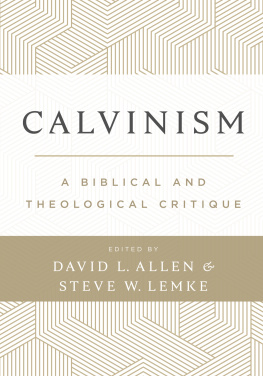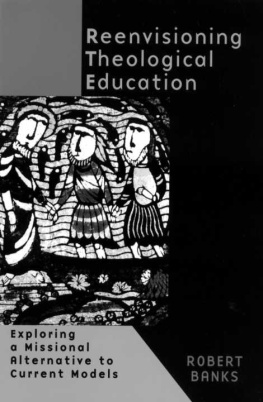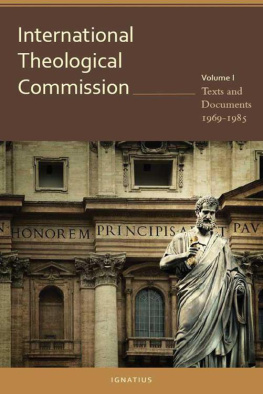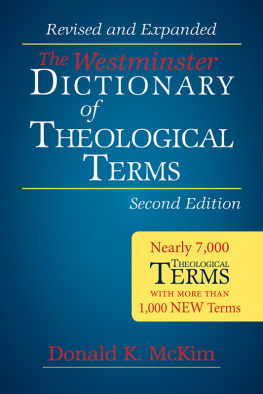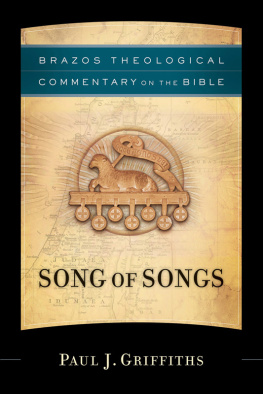Robert W. Pazmino - Doing Theological Research: An Introductory Guide for Survival in Theological Education
Here you can read online Robert W. Pazmino - Doing Theological Research: An Introductory Guide for Survival in Theological Education full text of the book (entire story) in english for free. Download pdf and epub, get meaning, cover and reviews about this ebook. year: 2009, publisher: Wipf & Stock Pub, genre: Religion. Description of the work, (preface) as well as reviews are available. Best literature library LitArk.com created for fans of good reading and offers a wide selection of genres:
Romance novel
Science fiction
Adventure
Detective
Science
History
Home and family
Prose
Art
Politics
Computer
Non-fiction
Religion
Business
Children
Humor
Choose a favorite category and find really read worthwhile books. Enjoy immersion in the world of imagination, feel the emotions of the characters or learn something new for yourself, make an fascinating discovery.
- Book:Doing Theological Research: An Introductory Guide for Survival in Theological Education
- Author:
- Publisher:Wipf & Stock Pub
- Genre:
- Year:2009
- Rating:4 / 5
- Favourites:Add to favourites
- Your mark:
- 80
- 1
- 2
- 3
- 4
- 5
Doing Theological Research: An Introductory Guide for Survival in Theological Education: summary, description and annotation
We offer to read an annotation, description, summary or preface (depends on what the author of the book "Doing Theological Research: An Introductory Guide for Survival in Theological Education" wrote himself). If you haven't found the necessary information about the book — write in the comments, we will try to find it.
Robert W. Pazmino: author's other books
Who wrote Doing Theological Research: An Introductory Guide for Survival in Theological Education? Find out the surname, the name of the author of the book and a list of all author's works by series.
Doing Theological Research: An Introductory Guide for Survival in Theological Education — read online for free the complete book (whole text) full work
Below is the text of the book, divided by pages. System saving the place of the last page read, allows you to conveniently read the book "Doing Theological Research: An Introductory Guide for Survival in Theological Education" online for free, without having to search again every time where you left off. Put a bookmark, and you can go to the page where you finished reading at any time.
Font size:
Interval:
Bookmark:
Doing Theological Research
An Introductory Guide
for Survival in Theological Education
R OBERT W . P AZMIO
WIPF & STOCK - Eugene, Oregon
Doing Theological Research
An Introductory Guide for Survival in Theological Education
Copyright 2009 Robert W. Pazmio. All rights reserved. Except for brief quotations in critical publications or reviews, no part of this book may be reproduced in any manner without prior written permission from the publisher. Write: Permissions, Wipf and Stock Publishers, W. th Ave., Suite , Eugene, OR 97401 .
Wipf & Stock
An Imprint of Wipf and Stock Publishers
W. th Ave., Suite
Eugene, OR 97401
www.wipfandstock.com
ISBN : - - 60608 - -
Manufactured in the U.S.A.
Unless otherwise stated, Scripture quotations are from the New Revised Standard Version. Please use standard language for this Bible translation.
Dedicated to all my students in theological education,past, present, and future
Introduction
S TUDENTS IN pursuit of theological education will discover the essentials of conducting theological research in this concise introductory work. It provides an overview of expectations from my twenty-eight years of guiding students with their research and study in a variety of settings and from working with theological faculty in a number of schools.
The three general objectives of the book are:
. To explore the purposes and basics of theological study and research. . To reaffirm the importance of theological study and research in a variety of theological disciplines. . To inspire Christians in relation to the calling to study as a form of worship and spiritual discipline.If readers embrace the passion and potential of theological research this work has accomplished its intent. My hope is that persons called to theological study and research will love God with all of their mind in addition to all of their heart, soul, and strength throughout their journey in this world and the next.
The four appendices of this work include actual teaching guides that my colleagues and I use in our classes to assist students with their research and writing. While I served as the interim dean of the faculty at Andover Newton Theological School students identified these guides as helpful for their learning. I appreciate the willingness of my colleagues to share their wisdom with readers of this guide so that all our efforts in theological education might glorify God. These appendices provide specific insights for research and writing in theological disciplines that are identified in chapter .
Where to Start
T HEOLOGY LITERALLY means the study of theos or God. Theological education extends an exciting invitation to explore the study of God with implications for all of life. The invitation to love God with all of ones mind in graduate-level study also seeks to engage the heart, soul, and body of theological students. This invitation in many cases includes the exploration of ones calling or vocation in life.
Theological education is a spiritual invitation to explore ones own love of God and neighbor. This is realized in community with those who both honor and question the spiritual sources and wells that have and will sustain persons, communities, and societies. Sustenance is found in living spiritual traditions and in the new offerings of Gods Spirit to address present and future challenges in the world. Spiritual life and traditions are studied from the perspective of loving critics who daily recognize our human limitations and Gods ever-present grace.
Theological education is an intellectual invitation to explore critical and post-critical faith perspectives that pose a challenge for those who are threatened by a movement to closely examine conventional faith understandings. James Fowler considers the stages of individual reflective faith and conjunctive faith that young, middle age, and older adults can encounter on their life journeys during theological study. Basically, individual reflective faith invites a choice of ones own personal beliefs, values, and commitments within and beyond inherited faith traditions to affirm and own a particular religious identity, especially one that is shared with faith communities. Theological study invites students to wrestle with the integration of faith and life. Both these faith stages named by Fowler call for a stretch intellectually and personally for those called to study in community with teachers and fellow students both in and outside the walls of theological schools.
Theological education generally has been organized around a discipline division known as the theological quadrilateral that is comprised of four areas of study: biblical, theological, historical, and practical. In addition, historically a two-fold pattern that interfaces theory and practice is often maintained that combines the academic and professional preparation of theological students. This combination intends for clergy and laity that they be informed, formed, and transformed in ways that enable them to be effective in their callings in the world. These curricular and organizational patterns were identified historically in the mid-twentieth century in a series of theological education studies sponsored by the then American Association of Theological Schools, now the Association of Theological Schools (ATS), the body that accredits theological schools. The Carnegie Foundation also supported the studies, which are commonly known as the Niebuhr studies. H. Richard Niebuhr, Daniel Day Williams, and James M. Gustafson write and edit the study reports.
A more recent study also supported by the Carnegie Foundation, Educating Clergy , focuses upon preparation for the professions of priest, pastor, and rabbi in particular as the primary, though not exclusive, constituency of theological education. I think that Niebuhrs purposes should now be expanded to include Gods love of the world (John 3:16) understood as Gods creation. This additional purpose is crucial with the global ecological crisis that confronts humanity.
My thoughts up to this point assume one is presently studying or convinced they are to begin theological study. A prior decision requires discernment whether to undertake such a venture. Discerning a call to begin study at a theological school is best considered in conversation with a number of people. First a conversation with those who know you well in your current situation is important to broaden your personal perceptions of what theological study can mean at this point in your life journey. A call to a theological seminary, divinity school, or a graduate program in theology may be distinct from having clarity regarding your profession or ministry after your study is completed. For me personally, clarity came two weeks before completing my Master of Divinity program. Either I was going to pastor an urban congregation in Brooklyn, New York, or begin a doctoral program in the area of religious education to prepare for a career in teaching. The financial support to pursue further study was secured close to my day of graduation.
In addition to persons who know you well, for those considering the preparation for particular ministries, such as congregational pastoral ministry, interaction with persons currently leading such work can be valuable in a process of discernment. In my case, persons in both campus ministries whose advice I initially dismissed only heeding them five years later, and persons in my local church provided feedback that I should consider seminary training because of the gifts they identified in my ministries with others. It should be noted that resistance to a call to seminary is not uncommon among those studying at theological schools from my years of teaching experience.
A third group of persons with whom to discuss the possibility of theological education is those currently working and teaching at theological schools. I do recall a letter received from a seminary professor who shared his advice regarding a possible career in Christian counseling that led me to apply to programs in clinical psychology and social work. The advice included the recommendation of a Master of Divinity degree prior to the possible integration of Christian perspectives in counseling or social work at the doctoral level. That advice enabled me to discover and deepen my love for Christian education. For me, Christian education embraced a preventative communal approach to share with persons the resources of their faith in confronting life transitions and crises.
Next pageFont size:
Interval:
Bookmark:
Similar books «Doing Theological Research: An Introductory Guide for Survival in Theological Education»
Look at similar books to Doing Theological Research: An Introductory Guide for Survival in Theological Education. We have selected literature similar in name and meaning in the hope of providing readers with more options to find new, interesting, not yet read works.
Discussion, reviews of the book Doing Theological Research: An Introductory Guide for Survival in Theological Education and just readers' own opinions. Leave your comments, write what you think about the work, its meaning or the main characters. Specify what exactly you liked and what you didn't like, and why you think so.

